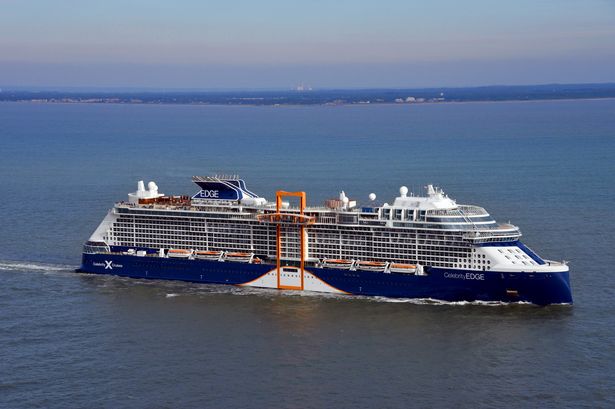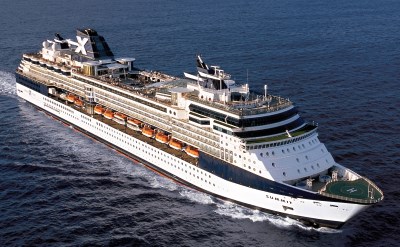
As part of medical care, Medics work aboard ships. They treat patients with various ailments, such as sore throats, colds, and injuries, such as ankle sprains, fractures, or even sprains. His most unusual case involves a crew member who contracted blood from a cruise ship. He has seen broken bones, congestive hearts failure, and even broken bones.
Salary
The ship medics are responsible to provide medical care for crew members and passengers of cruise ships. While they do not have to become licensed doctors, ship medics must receive medical training through the United States Coast Guard. The median annual income of ship medics is $74,530.
Ship doctors' salaries vary widely depending on their location. Atkinson (NE), Deer Park, NE and Johnstonville, CA are the highest-paid cities in the country. These cities pay salaries that are between 86.5 and $272,659 more than the national average.
Requirements for a job
You will serve as a ship doctor and part of the medical staff onboard, providing high-quality care to passengers and crew. Your duties include supervising and administering medical care aboard, as well as overseeing and maintaining the inventory of medications and medical supplies. As a ship medic, you will also be responsible for ensuring that shipboard medical facilities comply with the regulations and guidelines.

There are no job requirements for a ship medic. A paramedic (or nurse) who has been certified through the American College of Paramedics will be the first to respond on board a vessel. Paramedics provide individualized care to patients and crew. They can assess patients at the scene and transport them to a shipboard medical center if necessary. They are supervised by a physician, but practice independently under the authority of the ship's medical staff. They administer treatments according to specific medical conditions and work closely with other shipboard medical personnel and nurses. They also attend walk-in clinics on a daily basis.
Benefits
Being a ship medic has several benefits, including a secluded cabin and uninterrupted views of the sea. A single doctor is typically onboard, though sometimes more than one are available. Because doctors work split shifts, they might not be available 24/7 for urgent care. While on duty, doctors may not be able to attend important life events. The ship's health care staff should have access only to reliable hospital diagnostics.
The duties of a ship medic include emergency care for passengers and crew, administrative duties at the ship’s medical center, as well as administering medication. He or she reports to the ship's chief medical officer and to the company's Medical and Nursing Director. While a ship medic is not allowed to share a room with passengers, they will typically work as part of a team with the other crew members.
Locations
Locum tenens can be a great experience onboard a cruise ship. Enjoy the many luxuries onboard and visits to exotic ports. As you travel, you will have the opportunity to work on various cases. I was recently able to speak with two emergency medicine doctors about their experience with locum-tenens work on cruise ships. Stephanie Garcia MD, one of the physicians is based in Albuquerque New Mexico. She previously worked as a locum tenens physician in Southern California.
A ship medical officers' role is to provide high-quality care for passengers and crew aboard the vessel. They are also responsible for coordinating medical care with other members of a medical team, including the Senior Medical officer. They provide medical assistance onboard and coordinate care at shore. The ship's crew and passengers are also checked by the medical staff to make sure they are healthy. They also conduct COVID19 pointofcare tests and monitor temperatures, oxygen saturation, as well as other health questionnaires. They are available to respond to any medical emergency on board the ship and do all they can to ensure safety for the crew and passengers.

Vacancies
There are many positions on board that can be used for shipboard medical care. Some companies are specialized in finding medical professionals for a specific role on a cruise ship. These companies are the best at providing medical assistance for people on the sea. These roles require extensive knowledge in a variety of specialties such as heart trauma and primary care. The ship medic will direct and supervise the medical team. A ship medic also assists passengers, issues medicines, and maintains medical reports. The job requires a high level of reliability and bedside manner.
Although the job is challenging, it can also be very rewarding. You have the chance to travel to exotic ports and enjoy many of the benefits of being a ship doctor.
FAQ
Is there anything else I should know before going on a cruise?
Before you take your first cruise, you need to know a lot of things. First of all, remember that you will be traveling with other people. Do not be harsh about these people. You will never know how they feel about a situation. Keep in mind that you will be dining and drinking with strangers. Dress appropriately. On deck, you should not wear shorts or tanks. Comfortable clothing is best. You should be prepared for extreme temperatures. Pack plenty of sunscreens. You should bring a hat and sunglasses as well as a jacket for when you spend time outdoors. Remember that you are responsible. Don't drink & drive!
Is a cruise ship all-inclusive?
Because they don't offer meals for people with special dietary requirements, cruise ships aren't all-inclusive. There is no room service, laundry service, or other amenities like spas, pools, gyms, etc.
Certain cruise lines offer "all inclusive" packages, which include all the necessary amenities except alcohol. These packages include airfare, hotel accommodations (accommodation), entertainment, and beverages.
How do I pick the best cruise line?
It is easy to find the best cruise line. First, determine the type of cruise line you wish to take. You may want to take a small, intimate cruise with only a few people or if you prefer a larger cruise with lots of passengers. Consider how much you can afford. You might be interested in cruises that include all-inclusive options if you are looking for something cheaper. These packages will save you the hassle of paying for extra food, drinks, entertainment, and so on. You should also ensure that your cruise line offers good family programs if you're planning on a family trip.
How long does it take to get to port?
The distance between the port (and the ship) and the speed at the which the ship travels determine how long it takes for the port to reach. You should note that not all ships dock at the same location as the shore. This allows them to unload their passengers quickly. Other ships dock farther away from land so it takes longer time for the ship arrive.
Are there any cons to cruising?
You should consider the pros and cons to cruising. Some people may decide that they don’t want to spend the entire vacation on a yacht. Others might prefer to stay closer to shore or in a hotel. Some may not like being so far away from the land. However, choosing a cruise with plenty of time ashore can easily overcome these concerns.
Cruise vacations are popular.
The appeal of cruises is growing because they offer a unique vacation experience for those who aren't interested in long flights or airport delays. You can also relax in a serene environment where you don't have to worry about your schedule or any other aspects of daily life.
Tourists can visit multiple destinations both on land and by sea with cruise ships. This gives them plenty of time to see all the sights and attractions available in each destination.
Statistics
- *20% Gratuities Apply on Free Unlimited Open Bar; Free Specialty Dining. (ncl.com)
- You can save 15% off the total price if you book in advance of your trip. (travel.usnews.com)
- In addition, 10 to 15 percent gratuity is typically added to bar bills — for alcohol and soft drinks — and gratuities are applied to spa treatments. (cruiseline.com)
- The line estimates savings of 50% when you purchase this bundle. (travel.usnews.com)
External Links
How To
How to keep safe while on a cruiseship
On a cruise ship, there are many things you should know before embarking on your journey. It is essential that you know how to behave while onboard a cruise ship so you don’t get into trouble. Here are some safety tips you can use to make sure you have a great trip.
-
Be aware of your surroundings at all times. On cruise ships, people often congregate, especially at mealtimes. Because you are surrounded with people who want to talk and eat, it is easy to get distracted from your tasks. Do not let people distract you from your task. You should tell someone to stop doing something that is dangerous like smoking or drinking alcohol.
-
Keep your room keys close to your body when you board a ship. When you get onboard, hand your key over to the person checking you in. If you get lost or need to be found, this will help you to locate your shipmates. Your passport is also important.
-
Your valuables should be kept out of reach. Most cabins include drawers under the beds. You can store important documents such as passports and credit cards. You should also make sure that nothing of value is visible. Put your bags away in the closet so no one can see them.
-
Stay hydrated. Even though cruise ships are well-stocked with water, it can sometimes be hard to remember how much. Make use of the free bottled water provided throughout the ship. Keep yourself hydrated. You will feel tired and cranky which can lead to accidents or fights.
-
Be attentive to all announcements. Announcements can also be seen on television screens and in public addresses systems. These announcements include safety procedures, emergency exits and weather reports. These announcements need to be taken seriously. They could save your life.
-
Lock your cabin door before you leave it. No matter how kind a crew member might seem, your cabin should be locked. Thieves are known to break in through doors that are not locked. A crew member can grant permission to use the restroom.
-
Avoid going too far. If you fall overboard, it takes time for the ship's crew to rescue you. Your body may be attracted by sharks and other sea creatures. Waiting until help arrives is the best option.
-
Smoking is not permitted in elevators. These elevators are pressured, which means smoke can quickly build up. Get off immediately if you feel dizzy or lightheaded. It doesn't necessarily mean that breathing is safe, even though the outside air is clean.
-
Learn the evacuation procedure. Every year, thousands are killed in elevator accidents. Follow the screen instructions in case of an emergency.
-
Make sure you are familiar with the fire drill. Fire drills take place regularly, almost every day. Everyone on deck must evacuate during a drill. Follow the instructions of the crew members. When the drill is finished, return to the cabin and lock your door.
-
Ask questions before you accept food or drink. Cruisers often experience food poisoning. Many people don't realize that certain foods aren't safe to eat while onboard a ship. On most cruise ships, raw oysters are prohibited. If you're not sure whether the food being served is safe, you can politely decline it and opt for another meal.
-
Be careful when using the pool. There have been numerous instances of people accidentally falling into the pools. This is a common occurrence. You can also slip and fall off the deck at any moment. Wearing proper footwear is a must and paying attention to the surroundings are important.